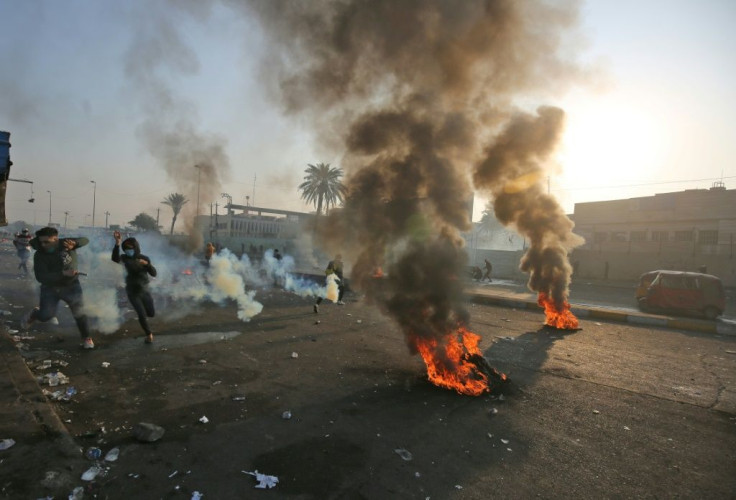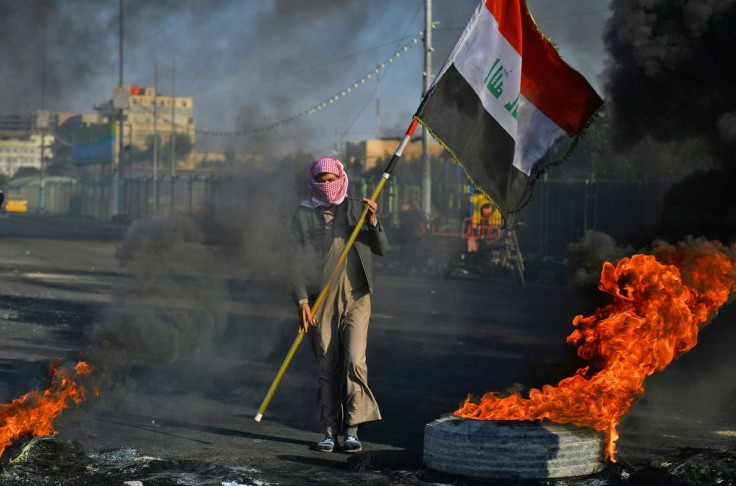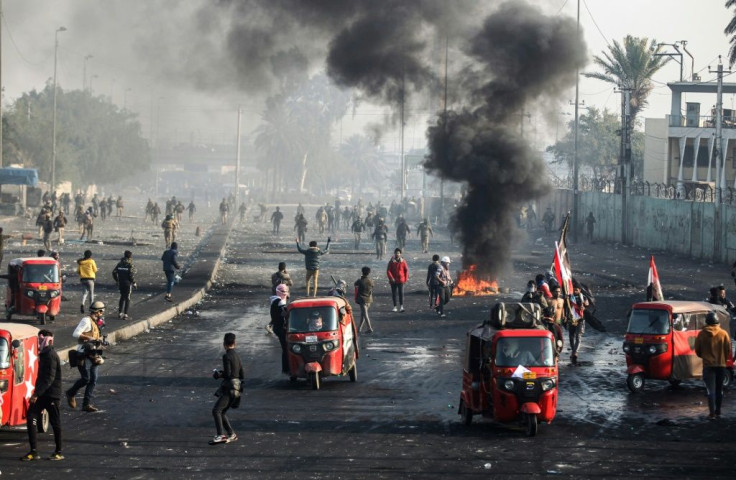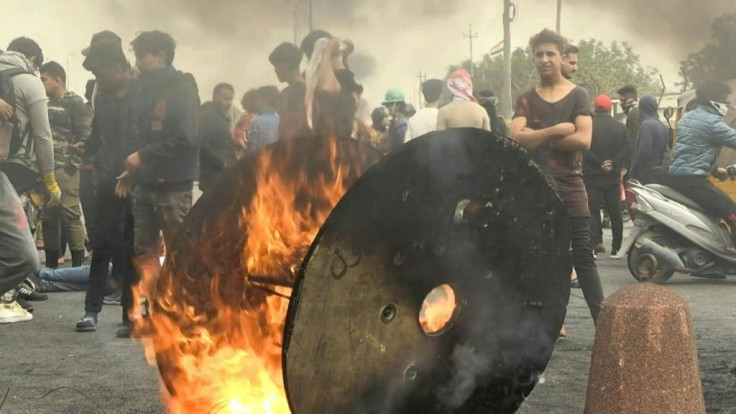Three Iraq Protesters Killed As Anger Boils Over Govt 'Procrastination'

Three Iraqi protesters were killed in the capital as thousands of anti-government demonstrators sought to shut streets across the country on Monday, their deadline for authorities to implement long-awaited reforms.
Rallies have rocked Iraq since October but, fearing they would lose momentum amid spiralling regional tensions, protesters last Monday told the government it had one week to meet their demands or they would escalate their demonstrations.
Protesters sought to ramp up pressure on the government on Monday with pop-up rallies away from their main gathering place in Baghdad's iconic Tahrir (Liberation) Square.
Hundreds descended on nearby Tayaran Square, where they clashed with security forces who fired tear gas and live rounds to disperse them, an AFP journalist said.
Three protesters were killed, medics told AFP, two of them by live rounds and the third by a tear gas canister that pierced his neck.
More than 50 other people were wounded, the medics said.
Young men wearing helmets and gas masks in an attempt to protect themselves from flying gas canisters erected barricades to try to push riot police back.
Protesters have called for early elections under a new voting law, an independent prime minister to replace outgoing premier Adel Abdel Mahdi and for all corrupt officials to be held accountable.
Late Sunday young protesters began sealing off highways and bridges across the capital Baghdad and Iraq's south, torching tyres and setting up makeshift barricades.

They tried to do the same early Monday in the capital but security forces acted fast, with the military saying it had reopened a major Baghdad thoroughfare and arrested nine young men who had attempted to seal it off.
Fearing widespread rallies, provincial authorities across southern Iraq announced an official holiday on Monday.

But young people hit the streets in the southern cities of Kut, Nasiriyah, Baqubah, Amara and the holy city of Najaf, setting tyres on fire.
In the protest hotspot of Diwaniyah, they shut key roads both inside and leading out of the city.
"The procrastination of the government and the political class for more than three months now has prompted us to take escalatory steps to pressure them to meet our demands," Mohammad Faeq, a 28-year-old protester, told AFP.
Since October, around 460 people have lost their lives to protest-related violence and another 25,000 have been wounded, according to an AFP count.
Authorities do not provide updated casualty figures.

Demonstrators have feared their movement would be eclipsed by the geopolitical storm brewing between neighbouring Iran and the United States, both close partners of Iraq.
A US drone strike near Baghdad's airport on January 3 killed top Iranian commander Qasem Soleimani, prompting Iranian rocket strikes on an Iraqi base housing US troops and triggering fears of a wider conflict.
Iraqi political figures have since ramped up their calls for foreign forces -- including some 5,200 US troops -- to leave the country.
The dramatic escalation came after months of rocket attacks on Baghdad's high-security Green Zone, home to the US embassy and other missions, as well as Iraqi bases where US troops are deployed.
Three rockets hit near the US embassy just after midnight on Tuesday morning, security sources told AFP, with no immediate reports of casualties.
On Monday, the United Nations' top official in Iraq Jeanine Hennis-Plasschaert said ignoring the demands of protesters would only fuel "anger and distrust".
"Domestic unity, cohesion and determination are urgently necessary to build resilience against narrow partisan interests, foreign interference and/or criminal elements which actively seek to hinder Iraq's stability," she added.
Protesters also worry that a mass rally to be organised Friday by firebrand Shiite cleric Moqtada Sadr to demand the ouster of US troops could drown them out.
Last week, Sadr urged Iraqis to hold "a million-strong, peaceful, unified demonstration to condemn the American presence and its violations".
While protesters have criticised the US, they have directly accused Iran of hindering Iraq politically and economically.
Tehran holds major sway in Iraq, building up close ties with a variety of political and military players over decades.
Protesters say Iran's overreach has contributed to rampant corruption and poor services.
The World Bank says one in five people lives below the poverty line in Iraq, which is OPEC's second-biggest crude producer.
While the rallies initially railed against the economy, they quickly escalated to demand a total overhaul of government.
Demonstrators have publicly rejected names circulating as possible replacements and are furious that other sweeping reforms have not been implemented.
© Copyright AFP {{Year}}. All rights reserved.





















